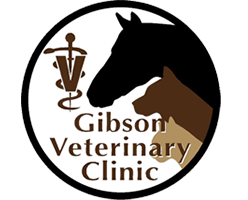Geriatric Pet Care: Old Friends Deserve Special Attention
Our aging pets mean so much to us and we want them to have a comfortable and happy existence late in life. The best way to ensure this contentment is to provide them with the right care for the right stage of life. Gibson Veterinary Clinic follows a special protocol designed specifically for the needs of your aging pets.
Wellness for our senior pets requires a little extra attention. We recommend regular check-ups every 6 months for the healthy senior, with blood testing, urine testing, and dental cleaning annually. This semi-annual exam allows us to diagnose age-related illnesses at the earliest stage and begin treatment. This practice is not only the least invasive for senior pets, but is often the least costly for the pet owner.
Scheduling regular veterinary exams is one of the most important steps you can take to keep your dog healthy and happy throughout his or her lifespan, and this becomes even more important as your pet ages. Just as physicians recommend certain tests, such as cholesterol screening and blood pressure checks, when a person turns 40, the American Animal Hospital Association recommends annual screening tests begin when your pet reaches middle age, ranging from age 4–7 for most dogs and age 7 for cats. These tests.
- Ensure your pet is healthy
- Establish “baseline” values for comparison with future test results
- Help us make preventive care recommendations to delay the onset or progression of certain diseases
Remember, your pet ages more rapidly during the golden years, and the risk of developing a chronic condition or serious disease increases. Scheduling a routine wellness visit every 6 months will help your veterinarian detect diseases or conditions in their early stages when they may still be treated or controlled effectively.
The senior wellness exam should include a comprehensive medical history; a complete physical exam, which includes checking your dog’s overall appearance, temperature, body weight, heart, lungs, ears, eyes, teeth and gums, thyroid gland, and skin and coat; age-related laboratory tests; and preventive health recommendations.
The most important screening tests for healthy senior pets include:
- Complete blood count–for the diagnosis of infection, anemia, and bleeding problems and to provide insight into the status of the immune system
- Serum chemistry profile–for assessing the status of the liver, kidneys, pancreas, thyroid gland, and other organs
- Urinalysis–for evidence of infection and to assess kidney function
- Fecal analysis–for evidence of parasites and unusual bacteria and protozoa
- Radiographs–for evidence of early arthritis and internal tumors or cancers
We may recommend additional testing, including echocardiography (ultrasound of the heart); abdominal ultrasonography; adrenal gland testing; EKG with blood pressure measurement; or liver, pancreas, and small intestine function tests.
At the semi-annual exam, we will also discuss preventive health recommendations designed to keep your senior pet healthy and happy, including information about:
- Dental and oral care
- Diet and nutrition
- Weight control
- Exercise guidelines for mobility
- Early intervention for pain management
- Parasite control
- Vaccination risk assessment
- Maintenance of your pet’s mental health
- Environmental conditions for maintaining health
Your senior pet has given you loyal, lifelong love and companionship. With a little extra care and attention, we can help your old friend enjoy the golden years and live a happier, fuller life. To assist veterinary hospitals in offering optimal care for senior pets, AAHA has issued a set of Senior Care Guidelines for Dogs and Cats. These guidelines create a framework for veterinarians, providing optimal care for all senior pets. Enjoy this summary of the AAHA guidelines for Senior Pet Care.
The American Association of Feline Practitioners (AAFP) offers very specific guidelines for the senior cat. These guidelines are intended to assist veterinarians in delivering quality care to senior cats, promoting longevity, and improving the quality of life for senior cats. These guidelines apply to all older cats, beginning at age 7. View a summary of these Cat Care Guidelines offered on the AAFP website.
Gibson Veterinary Clinic offers ample time at each geriatric wellness visit to discuss all of your pet concerns. And when it is time to discuss end-of-life issues, we can make a plan that supports the dignity of your pet while accommodating your needs and wishes.
The AVMA brochure, How Do I Know When It’s Time? is another helpful resource regarding end-of-life care.
